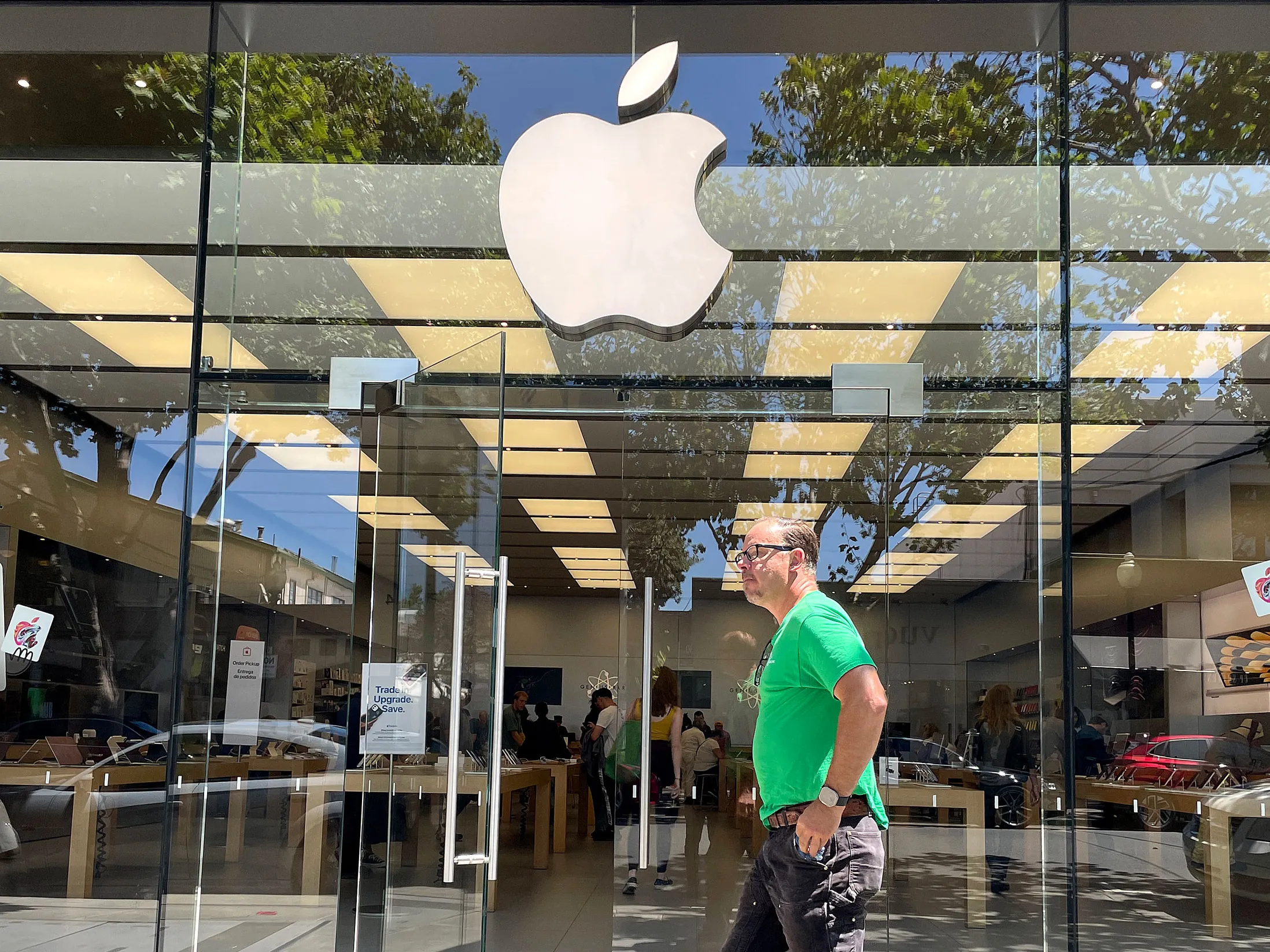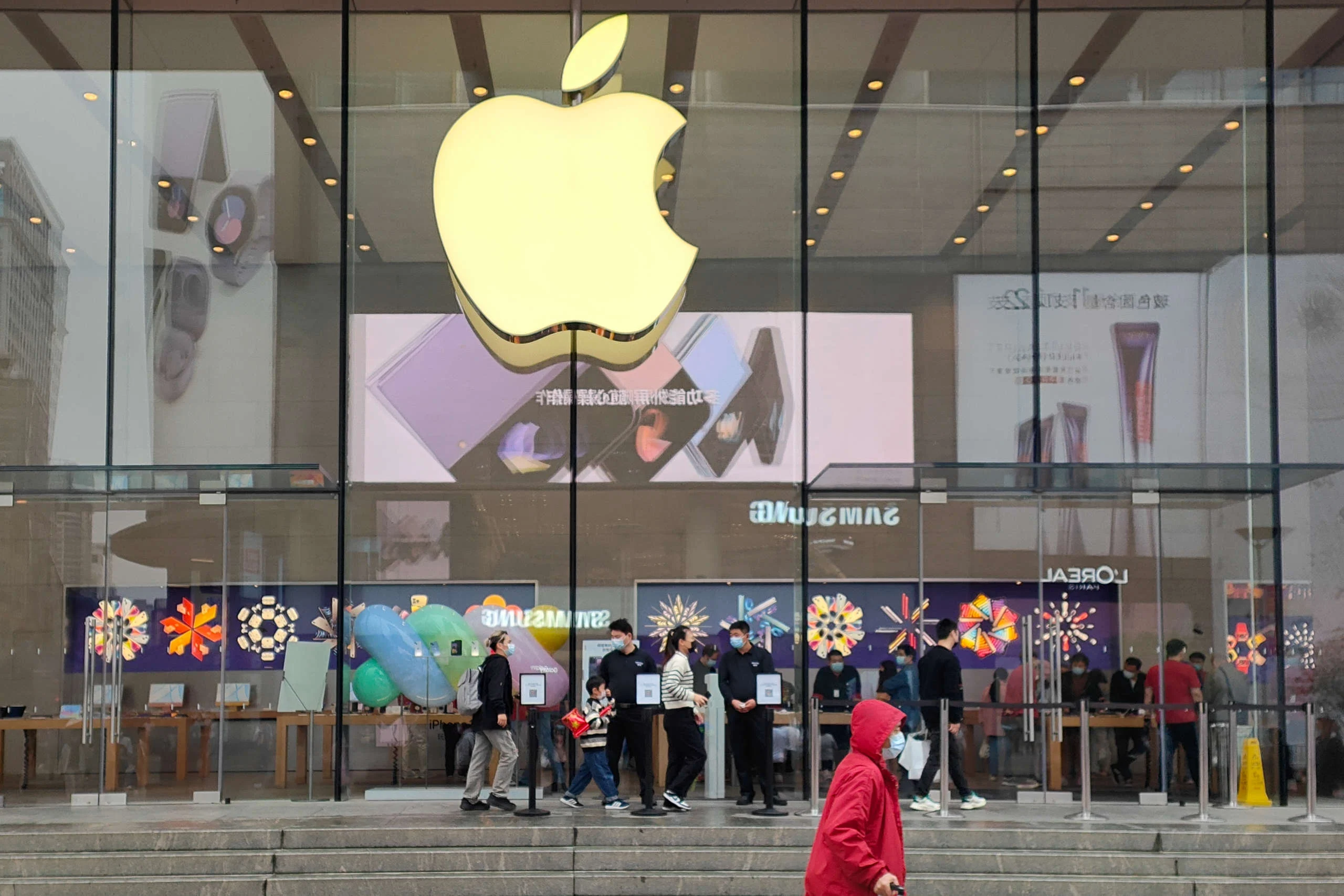In a significant legal development, Apple has been found guilty of illegally interrogating its employees at the World Trade Center store in New York City. The interrogation centered on the employees’ unionization activities, marking a pivotal moment in the tech giant’s labor relations history. This ruling by the US Labor Board underscores a growing scrutiny of Apple’s practices amidst increasing unionization efforts across various locations.

The board’s decision, driven by three Democratic-appointed National Labor Relations Board members, upheld the findings of Administrative Law Judge Lauren Esposito from the previous year. Judge Esposito’s conclusions were clear: company unlawfully impeded employees from distributing union flyers in the break room and went as far as removing these flyers, in addition to probing the workers about their union-related activities.
This landmark decision represents the board’s first ruling against tech giant concerning labor practices, setting a precedent that could influence future corporate governance and employee relations strategies not only for Apple but across the tech industry.
Came across a big protest shutting down the Apple Store in Chicago today— focusing on cobalt mining in the Congo, tech used to target Palestinians, and unionization of Apple stores. You love to see it! pic.twitter.com/OoQKmV6R8h
— Joel Miller (@CS_Synthesist) April 6, 2024
A Closer Look at Apple’s Environmental Commitments Amidst Controversy
While the tech giant grapples with these labor issues, the company continues to push forward with its environmental initiatives. The corporation aims to achieve carbon neutrality by 2030, transitioning 95% of its direct manufacturing spend to clean energy sources. This ambitious goal highlights the organization’s commitment to sustainability, even as it navigates the complex terrain of labor relations and unionization challenges. The juxtaposition of the tech giant’s progressive environmental policies against its scrutinized labor practices presents a dichotomy that reflects the broader challenges tech giants face in balancing corporate responsibility with business operations.

Unionization Efforts Across Apple Stores
The drive for unionization is not confined to the tech giant’s New York City operations. Recent years have seen employees at several of the company’s stores, including locations in Oklahoma City, Towson, Maryland, and Short Hills, New Jersey, pushing to unionize. The latter two stores have successfully formed unions, showcasing a growing trend of organized labor within the corporation.
In New Jersey, unionization efforts gained momentum in April, with workers at a tech corporation’s store becoming members of the Communications Workers of America (CWA). This union also represents employees from major companies like AT&T, Frontier, and Verizon, indicating a significant alignment in the telecommunications and tech sectors.
John Nagy, an operations lead at the Apple store in Short Hills, New Jersey, has been vocal about the benefits of unionization. He argues that forming a union is crucial for ensuring fair treatment, competitive wages, comprehensive benefits, and improved working conditions for employees. Nagy’s advocacy highlights the broader movement within Apple’s workforce seeking greater say in their employment conditions through organized labor.

Implications for Apple and Tech Industry Labor Relations
The National Labor Relations Board’s findings and the subsequent orders for Apple to cease its anti-union practices may serve as a wake-up call for the tech industry. These developments could potentially catalyze more robust protections for workers and inspire further unionization efforts across the sector.
As Apple continues to navigate these challenges, the company’s response to unionization efforts and its adherence to labor laws will be closely watched. The outcomes of these legal and organizational challenges will likely influence company’s corporate image and its relationships with employees.
The integration of sustainability goals with fair labor practices could set a new standard for corporate responsibility, pushing Apple and other tech giants to create a more balanced approach to business that equally prioritizes environmental sustainability and workers’ rights.










